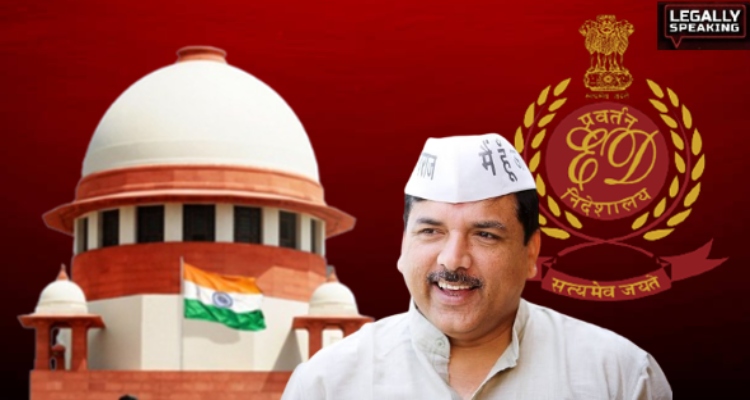
The Supreme Court, on Tuesday, granted bail to Sanjay Singh, a prominent figure in the Aam Aadmi Party (AAP), regarding the Delhi excise policy case. This decision came after the Enforcement Directorate expressed no objection to his bail.
The apex court specified that Sanjay Singh should be released on bail “during the pendency of proceedings,” with terms and conditions to be determined by the trial court, citing the ED’s stance.
A bench comprising Justices Sanjiv Khanna, Dipankar Datta, and PB Varale emphasized that this concession should not serve as precedent. Additionally, the court affirmed Sanjay Singh’s entitlement to continue his political activities.
In response to Singh’s bail, AAP leader Somnath Bharti criticized the federal agency, stating that it was exposed. Meanwhile, Delhi minister Atishi Marlena expressed satisfaction with the development.
This decision comes after a Delhi court remanded Chief Minister Arvind Kejriwal to judicial custody until April 15 in the liquorgate scandal.
The ED also disclosed that in his statement, Kejriwal mentioned AAP ministers Atishi and Saurabh concerning the accused in the excise policy case.
Bail After 6 Months
Sanjay Singh was arrested by the anti-corruption agency on October 4, 2023, following a raid on his premises related to the Delhi excise policy-linked money laundering case, making him the third AAP leader to be arrested.
The ED alleged that Singh played a pivotal role in the alleged scam, receiving Rs 2 crore in proceeds of crime. They claimed he was closely associated with accused businessmen Dinesh Arora and Amit Arora.
Delhi Chief Minister Arvind Kejriwal attributed the arrests to BJP’s desperation ahead of the 2024 Lok Sabha elections, alleging raids were politically motivated.
Before Singh, his party colleague and Delhi deputy chief minister Manish Sisodia was arrested in the liquorgate scandal, involving alleged irregularities in the Delhi excise policy introduced in 2021.
The investigation revolves around the money laundering case linked to the policy, which aimed to privatize liquor sales in Delhi, leading to allegations of kickbacks and commissions.




